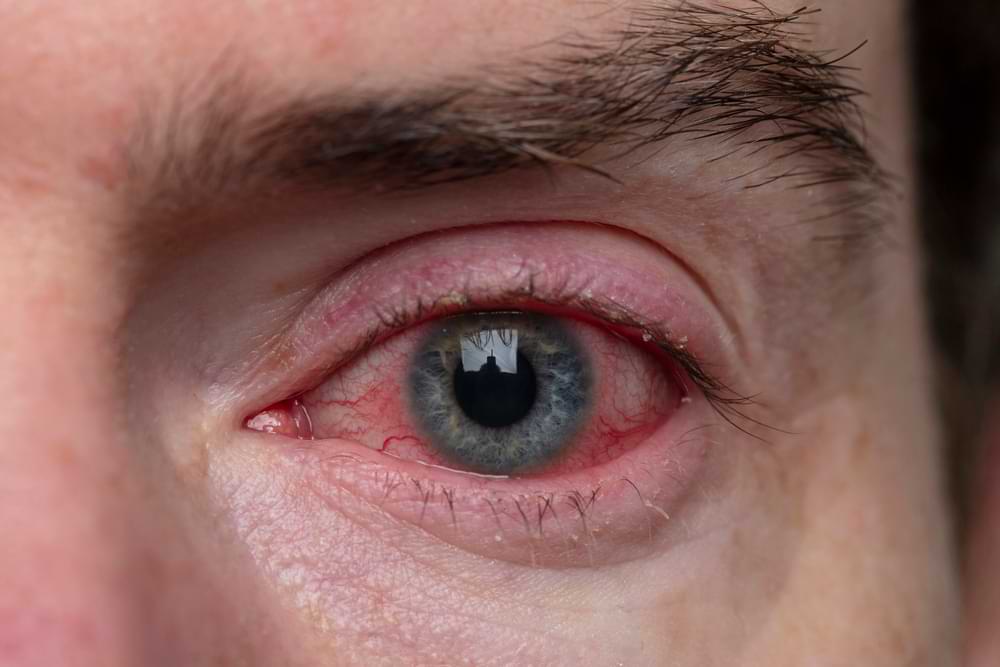Ever wondered who’s the best health care professional to turn to when you need to treat an eye infection? Do you know when it’s time to see an optometrist instead of trying remedies from your GP or pharmacist? Some viral eye infections don’t respond to common treatments and require special prescriptions.
My name is Nandita Chowdhury, and as the owner and principal optometrist at Picton Eyecare, I’ve spent over 15 years helping people protect their vision and eye health. I understand how eye infections can disrupt your daily life, causing discomfort and worry. My goal is to ensure you receive the most effective, compassionate care so you can regain your comfort and vision as quickly as possible.
Proper diagnosis and treatment of eye infections are key to protecting your overall eye health. So keep reading to better understand when you need to see an optometrist, a general practitioner, a specialist eye doctor or a hospital emergency ward for treating infected eyes.

Types of Eye Infections
Eye infections come in various forms, each with specific symptoms and causes. Some of the more common signs include redness, swelling, and discharge, which indicate inflammation. Blurred vision and light sensitivity are also frequent, along with pain that can range from mild discomfort to severe.
Bacterial Infections:
- Conjunctivitis (Pink Eye) is a highly contagious infection caused by bacteria such as Staphylococcus aureus or Streptococcus pneumoniae, leading to redness and thick discharge.
- Blepharitis causes inflammation of the eyelids, often linked to bacterial growth along the lash line.
- Styes are painful lumps on the eyelid, resulting from blocked oil glands infected with bacteria.
- Trachoma, a more serious bacterial infection, can cause scarring of the eyelid and even blindness if untreated.
Viral Infections:
- Herpes Simplex Keratitis (HSV) affects the cornea, causing painful sores and vision issues.
- Viral Conjunctivitis, often linked to adenoviruses, causes watery discharge, redness, and itching, and is highly contagious.
Fungal Infections:
- Fungal Keratitis, caused by fungi like Fusarium and Aspergillus, can result from eye injuries involving plant material or poor contact lens hygiene.
- Endophthalmitis is a serious, vision-threatening infection that can occur after eye surgery or trauma.
Parasitic Infections:
- Acanthamoeba Keratitis is a rare but severe infection often linked to improper contact lens care, leading to painful inflammation and potential vision loss.
Other Conditions:
- Uveitis, Scleritis, and Angle Closure Glaucoma are inflammatory conditions that, while not strictly infections, can lead to severe pain and vision complications if untreated.
Early detection of these infections is essential to prevent long-term damage and maintain good eye health. If you’d like to learn more about what might be specifically causing a swollen eyelid condition, watch the following video by Dr Joseph Allen, from the Doctor Eye Health YouTube channel.
Role of Optometrists in Treating Eye Infections
How can an optometrist help treat an eye infection? Optometrists are often the first healthcare professionals you’ll see when experiencing symptoms like redness, swelling, or discharge. They are trained to diagnose and treat a wide range of mild to moderate eye infections, such as conjunctivitis (pink eye), styes, and blepharitis (eyelid inflammation). If you’re noticing any discomfort, irritation, or unusual symptoms in your eyes, booking an appointment with an optometrist should be your first step.
At Picton Eyecare, we can prescribe targeted treatments, including antibiotic, antiviral, or antifungal eye drops, depending on the type of infection. Our therapeutic endorsement allows us to treat a variety of infections effectively. We also handle foreign body removal if something has lodged in your eye, which can help prevent further complications or infections.
Beyond immediate treatment, we focus on educating our patients. We provide advice on preventing future infections, such as proper contact lens hygiene, keeping hands clean when touching your face, and managing chronic conditions like blepharitis. Taking early action with an optometrist can ensure your eye health is protected and prevent infections from worsening.
When to Consult a General Practitioner
When should you see a GP for an eye infection? While optometrists can handle many types of eye infections, there are situations where a GP may be required, especially if the infection is linked to a systemic health condition. For example, eye infections caused by herpes simplex virus or chronic blepharitis may need oral antiviral or antibacterial medications that GPs are licensed to prescribe. Optometry Australia is currently advocating for therapeutically endorsed optometrists to prescribe oral medications, but for now, GPs are the go-to for these cases.
Infections like uveitis, which can be a recurring issue, may also need a GP’s input for further tests, such as blood work, to rule out underlying autoimmune conditions. Often, optometrists and GPs collaborate on managing these infections to ensure proper treatment and monitoring.
If you suspect your eye infection may be part of a broader health problem, or if previous treatments haven’t worked, it’s time to consult a GP. They can coordinate with your optometrist to ensure you get the comprehensive care you need.
Ophthalmologists and Advanced Treatment Options
Can you see an ophthalmologist for an eye infection? If you suspect your eye infection may be part of a broader health problem, or if previous treatments haven’t worked, it’s time to consult an eye specialist. They can coordinate with your optometrist and GP to ensure you get the comprehensive care you need.
Complex conditions such as keratitis or corneal ulcers require more advanced care than optometrists and GPs are equipped to handle. Ophthalmologists can manage infections that pose a serious risk to your vision, especially those affecting the deeper structures of the eye.
Recurrent infections, like chronic blepharitis or uveitis, may also necessitate a visit to an ophthalmologist. They have the expertise to explore more specialised treatments and identify any underlying causes contributing to the recurrence.
Ophthalmologists can perform surgical procedures for serious infections. For example, conditions like endophthalmitis, which can occur after surgery or trauma, often require urgent surgical intervention to prevent permanent damage. In such cases, timely intervention can mean the difference between preserving vision and losing it.
At Picton Eyecare we can refer you to an ophthalmologist if you need to see one.
Hospital Emergency Ward Treatment
When should you go to a hospital emergency ward for eye infection treatment? In some cases, eye infections can escalate rapidly and require urgent attention. If you experience sudden vision loss, severe eye pain, or if the infection is caused by trauma or chemical exposure, heading straight to the emergency ward is the best step, especially if it is outside normal business hours. These are signs that immediate medical intervention is needed to prevent lasting damage.
In the emergency ward, doctors may perform urgent procedures like surgical interventions for severe infections, such as endophthalmitis, or for intense inflammation that poses a risk to your sight. For serious infections, intravitreal antibiotics or antivirals may be injected directly into the eye for rapid treatment.
If the exact pathogen causing the infection isn’t clear, swabs may be taken to determine the precise bacteria, virus, or fungus behind it, ensuring the most effective treatment is provided. These measures are typically beyond what an optometrist or GP can handle and require the resources of a hospital.
Whenever you’re faced with extreme symptoms, don’t wait—hospital emergency treatment can make all the difference in saving your vision.
How Picton Eyecare Helps Treat Eye Infections
Why should you choose Picton Eyecare for treating your eye infection? As a therapeutically endorsed optometrist, I have the expertise and tools to diagnose and treat a wide range of eye infections. Using advanced eye examination technology we can detect infections or inflammation in the eye that might otherwise go unnoticed. This allows us to provide early and effective treatment.
Additionally, we can measure your eye pressure, which is crucial in cases where an infection might be linked to conditions like uveitis or glaucoma. Whether it’s prescribing the right medication or giving advice on prevention, we ensure you receive comprehensive care for your eye health.
CONCLUSION
Optometrists, pharmacists, GPs, eye specialists, and even hospital emergency wards all play different roles in treating eye infections, depending on the severity and type of infection.
Common types of eye infections include bacterial, viral, fungal, and parasitic infections, each requiring specific treatment approaches.
Therapeutics endorsed optometrist like myself can prescribe eye drops and provide essential care for most mild to moderate eye infections, while severe cases may require referrals to other health care professionals.
Without timely intervention, simple eye infections can spread, affecting deeper parts of the eye and potentially leading to irreversible vision loss.
So don’t wait for your symptoms to get worse—book an eye care appointment today to protect your vision and health.
You can call us on (02) 4603 2309 or arrange an appointment using the “Book Now” button in the website menu. We are conveniently located in the heart of Picton, NSW. There is plenty of parking available at the back of our store.

B.Optom (UoA), PGOT (UNSW)
Nandita is the principal optometrist of Picton Eyecare. She has over 15 years of extensive experience working in corporate and independent optometry practice. Opening Picton Eyecare in 2022 has fulfilled Nandita’s dream of an independent optometry practice, committed in serving the local community of Wollondilly and surrounding areas.
Nandita is caring and passionate about providing professional, personal and customised solution for every patient. She takes interest in all her patients and employs her skills and expertise to achieve the best possible outcome for the patient. She maintains great relationships with other medical professionals in the area.
Nandita is a local resident and has been working in the Southern Highlands for many years. She has a loyal following of patients who value her clinical and interpersonal relationships.
When not at work Nandita loves spending time with her family.
